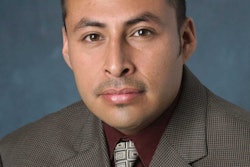Dr. Brendesha Tynes, like most scholars, was always a good student — vice president of her high school senior class, president of the National Honor Society, editor in chief of the yearbook. Yet despite her academic and extra-curricular achievements, she had professional aspirations that weren't exactly what her parents and teachers had in mind.
"All I did was dream about becoming a model," says the Detroit native. So with $80 in her pocket, she moved to New York, leaving Michigan State University after her first quarter. She got a few modeling assignments; however, during one casting call she got a harsh reality check.
"The person who was doing the hiring looked at me and said, 'Oh, we're not hiring Black girls this season,'" recalls Tynes.
"Something clicked in me and I said [to myself], I want to be judged for who I am on the inside, for what I have in my head, not for the way that I look."
Shortly thereafter, Tynes again applied to college and never looked back. Instead she has forged ahead, obtaining degrees from three top-tier universities.
Furthermore, she has, in her own words, "charted my own little research agenda." While focusing on the role the Internet plays in adolescent development, Tynes is taking a close look at online victimization and how that relates to and/or is associated with psychological adjustment. She also studies how race and identity are constructed online.
Tynes aims to paint a holistic picture of the experiences adolescents and emerging adults have on the Internet.





















